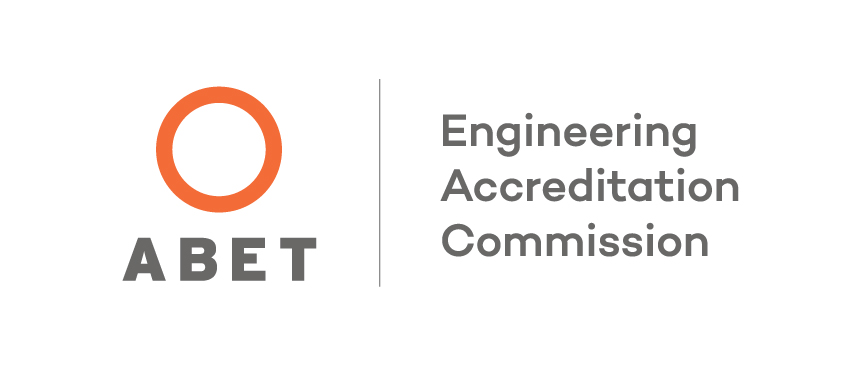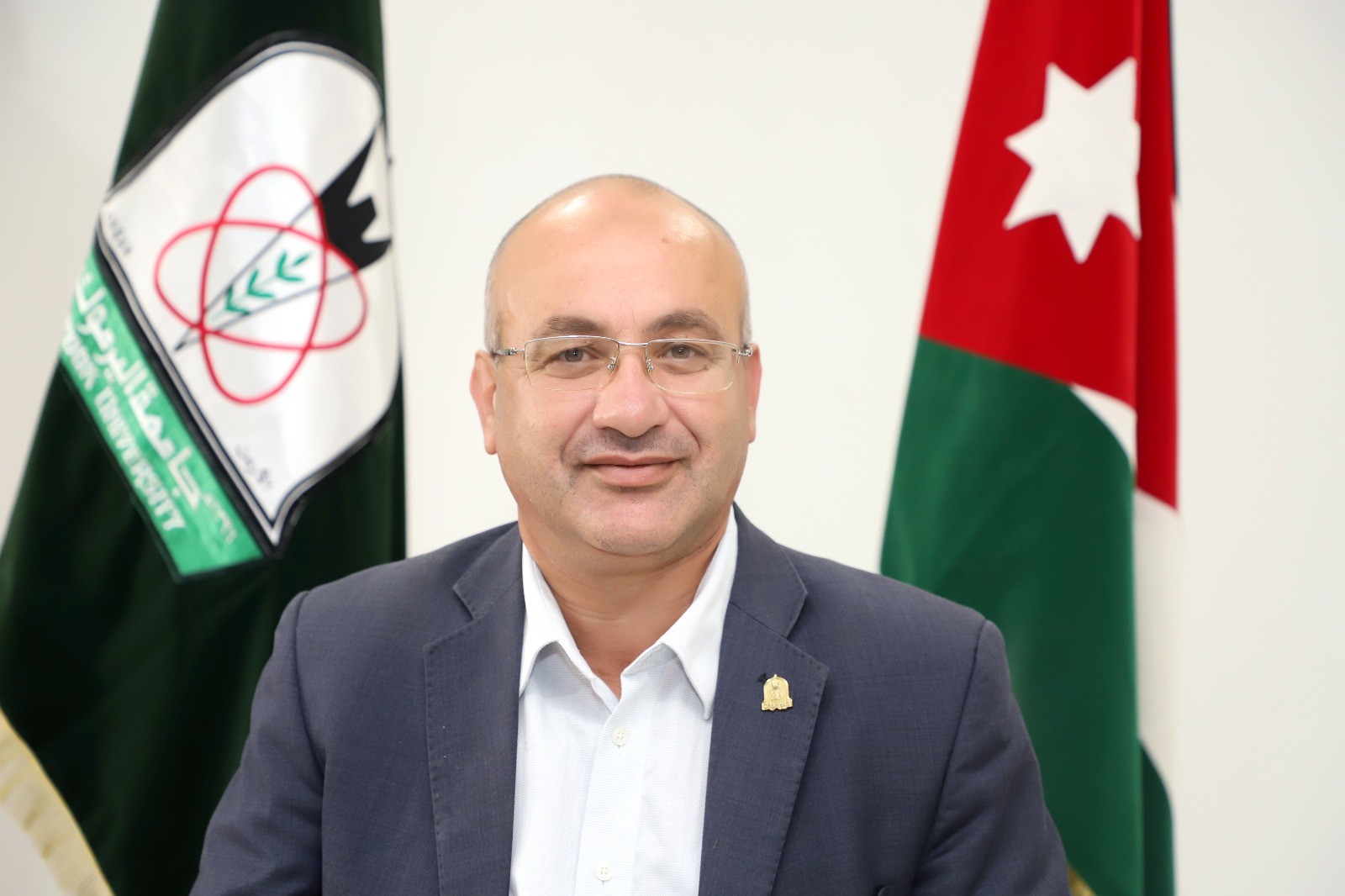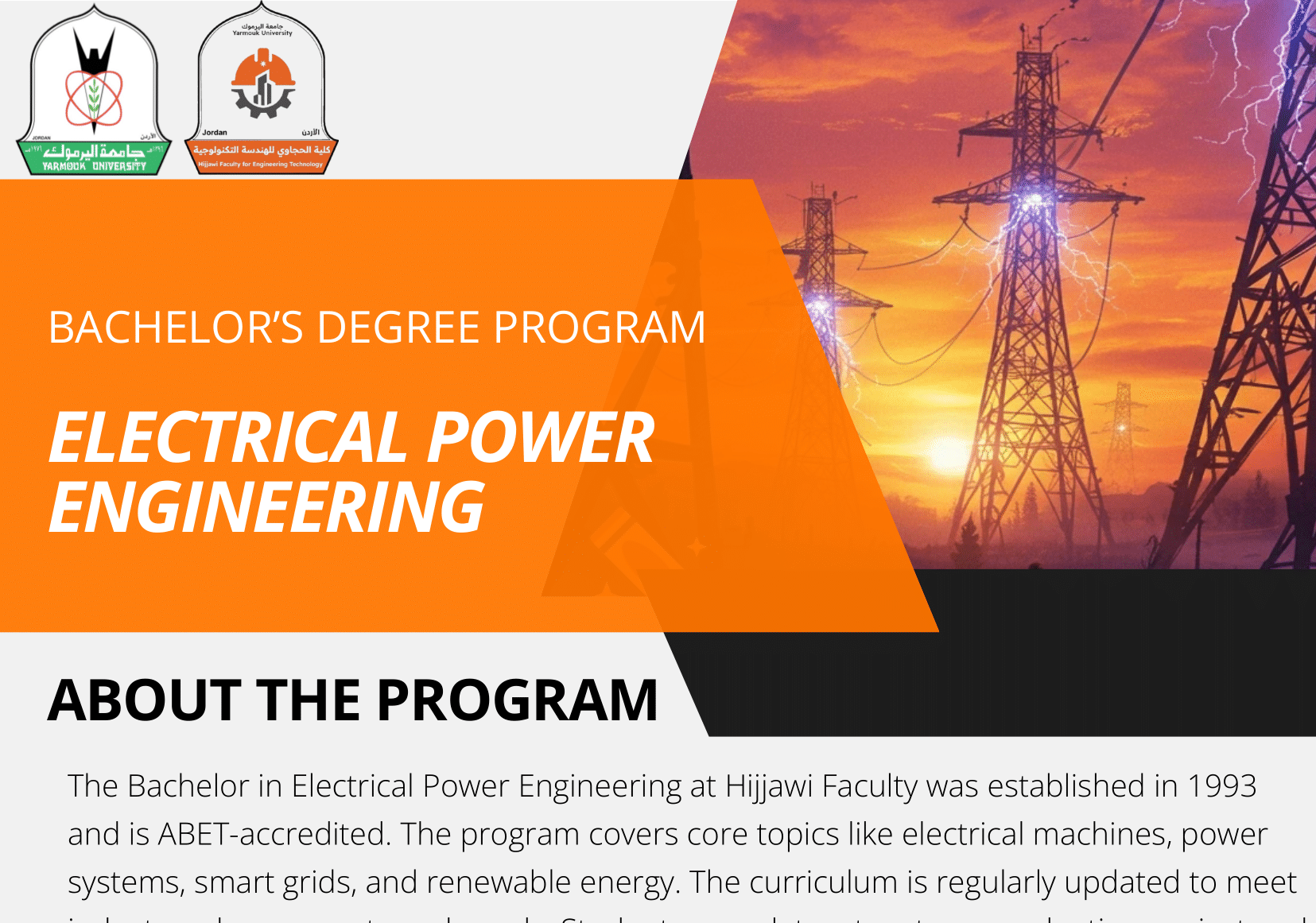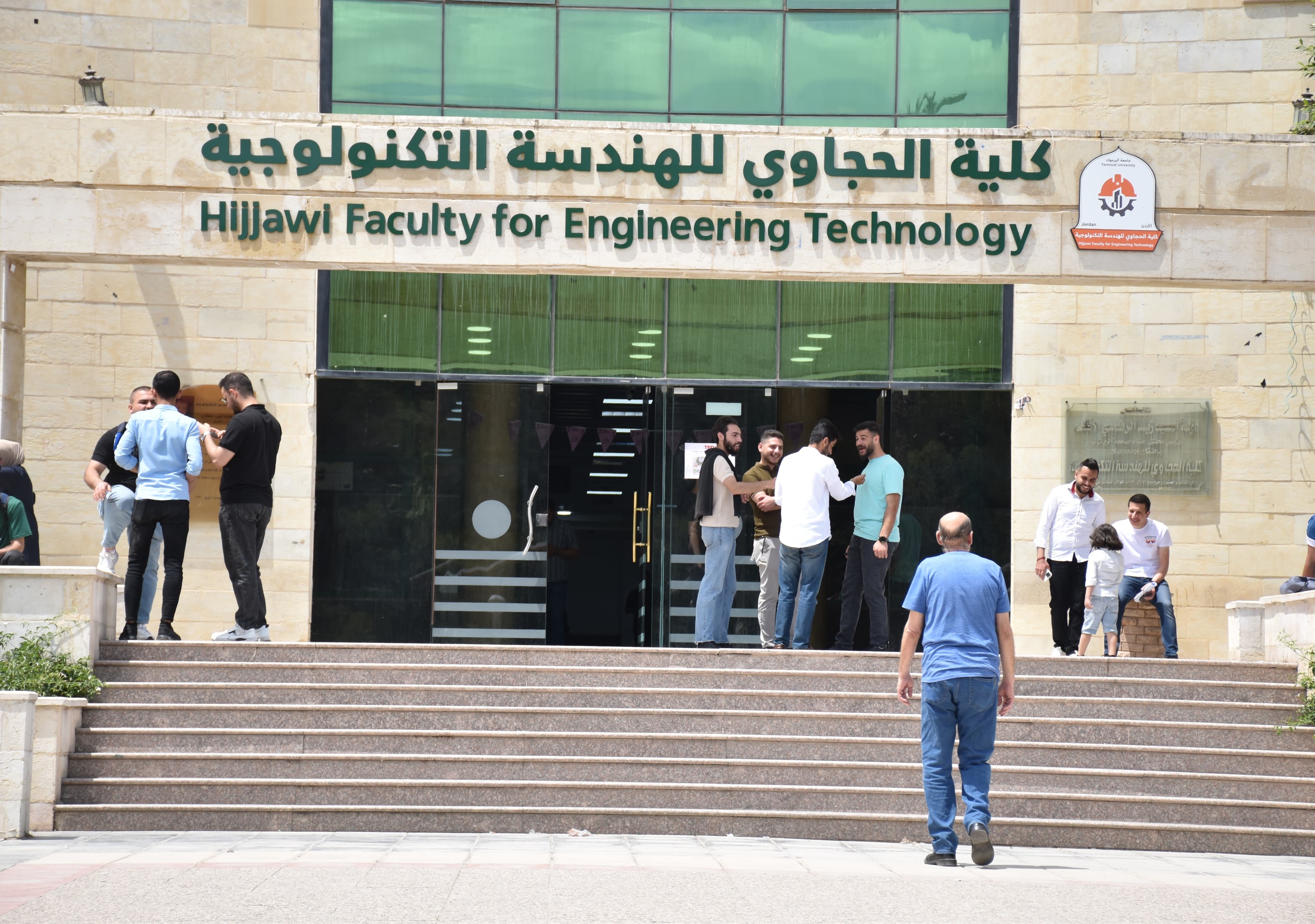Program Department and Chair
For inquiries or further information, please contact:
Email: electric.dept@yu.edu.jo
Phone: +962 2 721 1111 ext. 4239
Prof. Mohammad Al-Momani
Chair, Electrical Power Engineering Department
Professor, Electrical Power Engineering
mohammadh@yu.edu.jo
+962 2 721 1111 ext. 4239
About the Program
The Bachelor in Electrical Power Engineering degree program at the Hijjawi Faculty for Engineering Technology, Yarmouk University, was established in 1993. The program is accredited by the Engineering Accreditation Commission of ABET, https://www.abet.org, under the General Criteria and the Electrical, Computer, Communications, Telecommunications Engineering Program Criteria.
The program focuses on both theoretical and practical aspects of power engineering, covering fundamental topics such as engineering mathematics, physical sciences, electrical machines, power electronics, power systems analysis, distribution systems, smart grids, renewable energy, and high voltage engineering. The curriculum is regularly updated to reflect advances in power technologies and industry needs.
Students complete a two-term graduation project and a mandatory four-month full-time practical training (six credit hours) in companies or factories related to electrical power engineering. This hands-on experience, supervised by faculty, helps bridge the gap between academic knowledge and real-world applications.
Graduates of the program are well-prepared to enter professional careers in power engineering or pursue advanced studies, equipped with solid technical foundations and practical experience.
Program Educational Objectives (PEOs)
Prepare graduates within a few years after graduation to:
Enrollment Statistics
Study Plan
The study plan of the Bachelor in Electrical Power Engineering degree program consists of 167 credit hours, covering both core and advanced topics such as electrical machines, power systems analysis, power electronics, high voltage engineering, smart grids, and renewable energy systems. The curriculum integrates practical laboratory work in key areas like electric circuits, control systems, power electronics, electrical machines, system protection, and instrumentation.
It also includes four career development courses designed to enhance both hard and soft skills, starting from the first year of enrollment. Students complete a two-term graduation project and a mandatory four-month full-time field training (six credit hours) in companies or facilities related to electrical power, offering valuable real-world experience.
Students who obtain recognized international certificates in relevant areas may waive up to three elective courses. Additionally, foreign language courses are included to strengthen global employability and expand opportunities in international job markets and academic institutions.
This well-rounded curriculum prepares students to become competent and innovative electrical power engineers, ready to meet the demands of modern industry and energy systems.
Career Opportunities
-
Power generation, transmission, and distribution companies
-
Renewable energy industries (e.g., solar and wind energy)
-
Engineering consultancy and design firms
-
Electrical and electronic manufacturing
-
Utilities, infrastructure, and construction projects
-
Government agencies and regulatory bodies
-
Research centers and academic institutions
Industrial Advisory Board
Awesome Engineering Technology Program
Learn more about the Bachelor in Electrical Power Engineering degree program by exploring the materials provided here, and discover how it combines strong theoretical foundations, practical experience, and modern technologies in power systems to prepare skilled engineers ready to lead in the energy sector.





